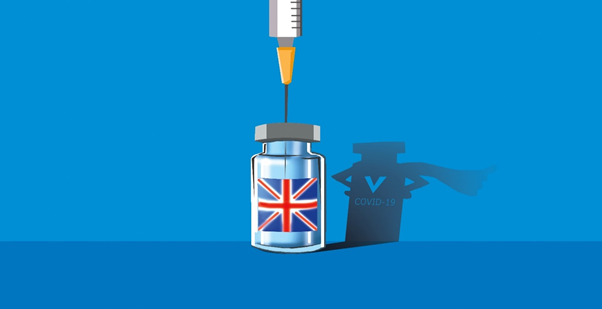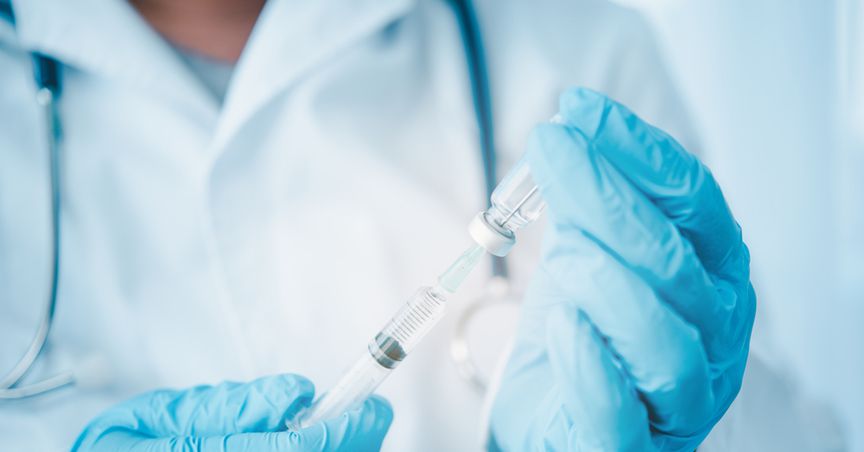Sumamry
- As per PHE, the Covid-19 inoculation programme alone has helped in preventing more than 11,000 deaths in England
- Various medical experts initially believed that there could be severe issues with the people who have received the Covid-19 vaccines.
The size and extent of the coronavirus pandemic has been quite rough and humongous so far in almost every country. No matter what age group you belong to, we have apparently seen the severity of the aftereffects of the Covid-19 (SARS CoV-2) virus in almost every individual, while a large section of people, who contracted coronavirus, have already succumbed to death.
It is no surprise why all the governments, regional authorities, central drug administrations, hospital jurisdictions, various departments of health and other healthcare bodies are pressing and encouraging the people to receive their Covid-19 jabs when they are called for it.
According to the latest study conducted by the Public Health England, the Covid-19 inoculation programme alone has helped in preventing more than 11,000 deaths in England. Over the months-long course of the still-running vaccination programme, there have been quite a few adversities with the people who have either received a single jab or have completed the two-dose regimen.
While, on the other hand, the vaccination has clearly steered the healthcare authorities in saving thousands of lives in the span of nearly five months. The data released by the PHE suggests that the available immunisation options -- the Oxford University & AstraZeneca vaccine and the Pfizer-BioNTech vaccine -- have collectively helped in averting as many as 11,700 lives, that too only in the people of more than 60 years in England up until the end of April.

Copyright © 2021 Kalkine Media
There had been long-ranging discussions and murmurs when the Medicines and Healthcare Products Regulatory Agency (MHRA), in a first, gave approval to the Covid-19 vaccine co-developed by the German’s BioNTech SE and America’s Pfizer for emergency usage.
Also Read: COVID-19: How Well Have The Vaccine Makers Performed?
Various medical experts initially believed that there could be severe issues with the people who have received the Covid-19 vaccines. The so-called formation of blood clots in the people who were administered the AstraZeneca vaccine surfaced across, developing a potential fear amidst the individuals that somehow disturbed the vaccination pace.
The individuals who have prepared themselves to get vaccinated suddenly changed their decisions, even after repeated iterations from the MHRA and the company producing the vaccine itself.
The ever-expanding scale of the vaccination programme in the United Kingdom has blatantly demonstrated a noteworthy victory in the battle against the coronavirus pandemic.
As per a separate weekly analysis done by the PHE, the hospital admission rate has subsided even further in the 18th week of the present calendar year. The data indicates that the rate of hospitalisation stood at 0.85 per 100,000 persons as compared to a gigantic measure of 37.20 per 100,000 individuals in the first week of 2021.
By and large, available options of Covid-19 vaccines have considerably supported lives in a big manner, that was seemingly anticipated by many but initially looked slightly blurred when the Department of Health and Social Care started rolling out the vaccines according to the priority list advised by the Joint Committee on Vaccination and Immunisation (JCVI).
During the earlier days, the cumulative effect of the vaccine was yet to be realised as it takes a whole lot of effort to vaccinate the people to the preference set by the JCVI as all the people were not readily available near to the vaccination centres.
Covid-19 vaccination has undoubtedly bolstered the confidence among the people as the prospective benefits and advantages of the available jabs are relatively way higher than the possible chances of adverse effects associated with it, the fact which was initially dictated by the respective vaccine makers, as well as the approving authority.
However, the enthusiastic effort of the Track and Trace services being handled by the National Health Service (NHS), restrictive environment, and other pandemic-induced curbs imposed by the government are duly entitled to receive a mention as all the aforementioned activities and guidelines have somewhere or the other helped in minimising the spread, thereby lessening the burden on the hospitals and healthcare departments to work more efficiently.
The inaugural study conducted by the PHE has also indicated that the vaccination drive has assisted in forestalling at least 33,000 hospital admissions of people within the age group of 65 years and above in England during the corresponding period.
The data has been backed by clinical evidence, which backs that the Covid-19 immunisation programme has been highly effective in avoiding the people seeking hospital admissions, especially old age people. So far, the inferences have been drawn on the basis of people receiving the first jab as a part of the two-dose structure of Covid-19. The PHE is likely to publish the impact of the second dose of the Covid-19 vaccine.





